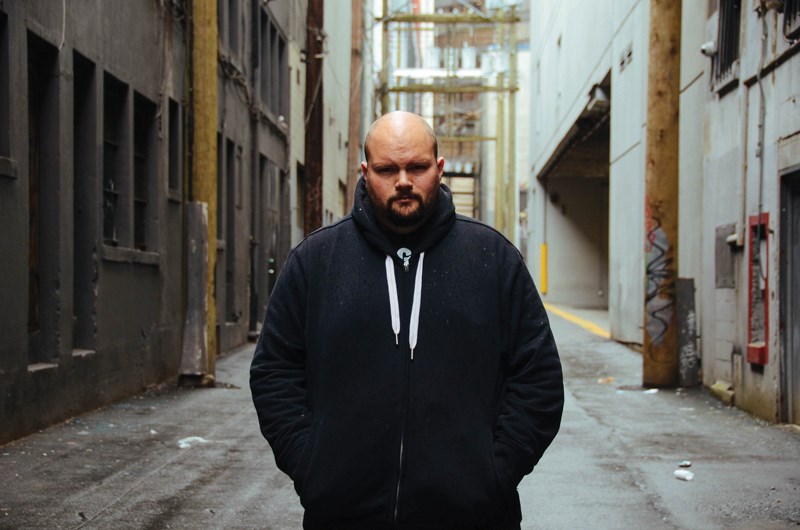Moderator and author Robin Spano speaks with crime and mystery authors William Deverell, Ian Hamilton, and Sam Wiebe Tuesday, Aug. 2, 4-5 p.m. at John Lawson Park. Part of the Harmony Arts Festival’s Readings in the Park program. harmonyarts.ca
Sam Wiebe takes a sideways look at my face and comments that if I set my heart on a modelling career I’d never suffer scheduling conflicts – then he shows me pictures of the missing girl.
Wait, my apologies, that wasn’t Sam Wiebe at all, that was the other guy: Dave Wakeland, private investigator.
Wakeland is Encyclopedia Brown with a Cadillac, cruising Metro Vancouver’s streets and dealing with serial killers and lawyers – two groups he finds equally uninteresting.
Asked if he shares many opinions with Wakeland, Wiebe laughs.
“Just the good ones,” he says.
Growing up in Vancouver, Wiebe was surrounded by detectives; John D. MacDonald’s Travis McGee books from his father and Raymond Chandler’s Philip Marlowe from his mother.
McGee’s quips and Marlowe’s contempt for the crystal doodads of the idle rich are both in evidence in Wakeland.
When discussing what advice he could offer aspiring writers, Wiebe stresses the importance of being knowledgeable in your chosen genre.
“If you want to write mysteries and you don’t read mysteries you’re at a huge disadvantage because you’re just going to come up with ideas like: ‘What if the butler did it? or What if it was twins?’” he says.
“The wider you read the better.”
One of the formative books for Wiebe was Red Harvest, Dashiell Hammet’s story of a nameless detective in a divided town called Personville (pronounced: Poisonville). The story features a nameless hero who at one point announces he hadn’t laughed so much: “since the hogs ate my kid brother.”
“My mom had this really terrible, old paperback copy. I remember reading that and it blew my mind.”
Despite being a voracious reader, Wiebe said he didn’t seriously put pen to paper until the end of grad school, when he realized he had to write or get off the pot.
Eschewing the distractions of a computer screen, Wiebe wrote 1,000 words every day until he had a book.
For that first novel, Last of the Independents, Wiebe conjured up detective Michael Drayton, a young, independent investigator trying to figure out his place in the world.
For Invisible Dead, Wiebe created Wakeland, a grown-up Hardy Boy. He’s established, he’s got a partner to deal with, he even has office furniture (albeit fire damaged).
“He’s grappling with his own success,” Wiebe explains.
Wiebe just handed in what he hopes is the final draft of the second Wakeland novel.
“I really do just enjoy writing that character,” he says. “I would be very happy to do that as a series.”



